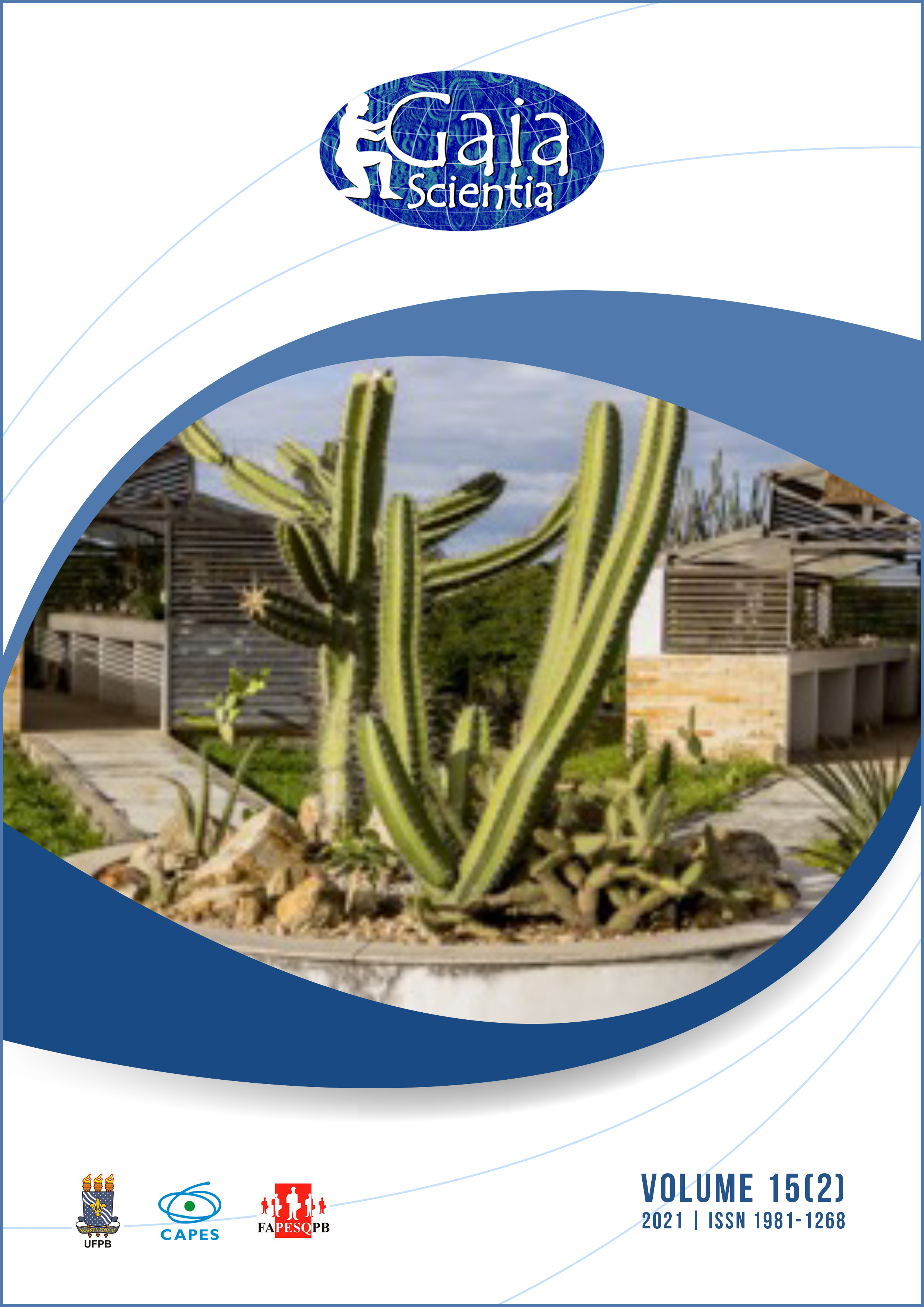Interdisciplinary approach to concepts related to doline-like features in the Araguaia Plain, Brazil
DOI:
https://doi.org/10.22478/ufpb.1981-1268.2021v15n2.52098Abstract
In the Araguaia Plain, circular depressions covered with vegetation are often referred to by diverse etymologies. However, the use of these concepts differ depending on the denominating subject and the contextualized meaning in different areas of knowledge. For this reason, the objective of this work was to analyze the relationship of toponymic designations of academic studies that are associated with the reference: “doline-like features”. For this, toponomastic methods of classifying projects and Social Networks Analysis-SNA applications were used. Based on those, 367 meanings in 66 academic studies, in the period from 1985 to 2019, were identified, with the most used designations being: ipuca (64.3%), impuca (25.3%) and doline (6.8%), referring to the idea of a flooded forest fragment. By applying the SNA method, it was possible to verify the semantic relationship, where the designation ipuca represents 92% of the links connected to different areas of knowledge (interdisciplinary) and the typology impuca registered 88% of the links associated with phytosociological studies (disciplinary). It can be concluded that in the interdisciplinary application ipuca and impuca extend a semantic meaning of vegetable origin to karstic structures denominated dolines; therefore, making a semantic distinction regarding the morphogenesis of the underlying substrate of the flooded forest fragments is needed, as failing to do so could impact the conservation and management of these structures.










